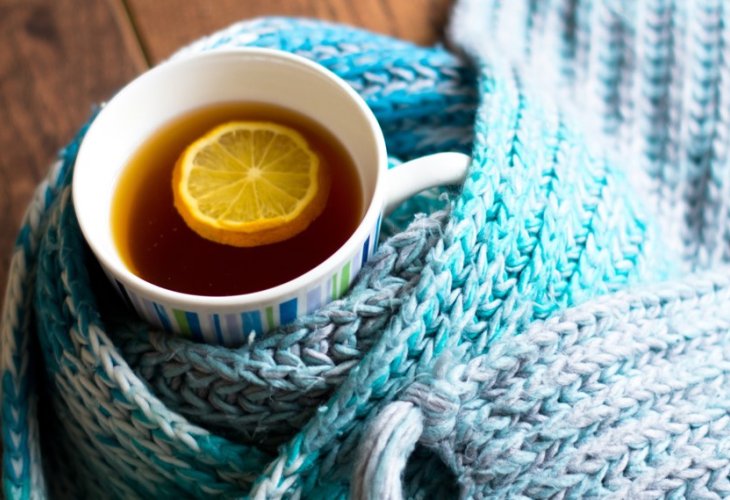How to Protect Yourself During the Winter Season
Are you starting to notice sneezes in the air at work or around your close friends? It's a sign that winter is here, along with colds and viral illnesses. Who needs to be extra careful, and what should you do to protect yourself during this season? All the answers here.
 (Photo: shutterstock)
(Photo: shutterstock)Unlike two winters ago when the flu affected thousands and overcrowded hospitals, last year only 1% of infections, hospitalizations, and deaths were due to the flu thanks to COVID-19 lockdowns and fewer social gatherings. However, this year, life has returned to normal—children are in schools, employees have returned to offices, and public transport is functioning regularly. So if you've been back at work and experienced a colleague coughing or passengers sneezing on the train, it's a sure sign that viral winter illnesses have arrived.
Flu and Coronavirus
Flu and coronavirus spread from person to person in the same way—infection occurs when someone breathes in virus-infected droplets expelled by a sick person. Since these droplets are usually expelled by sneezing or coughing, the risk of infection is usually within two meters of the sick person. However, being in the same space with an infected person can lead to infection if touching surfaces with infected droplets, which can then be transferred to mouth, nose, or eyes. Research so far indicates that coronavirus can survive outside the body longer than the flu, which only survives for a few hours on surfaces.
Every year new influenza strains develop, and thus, the vaccine also evolves annually. The flu vaccine can prevent complications like muscle aches, sore throat, high fever, chills, and even prevent bacterial pneumonia, especially prevalent in at-risk groups such as diabetics, cancer patients, and individuals with lung, liver, and vascular diseases.
Here are some general recommendations to protect yourself from infections in the coming period:
- Get vaccinated – The best way to protect yourself from winter illnesses and flu complications is through vaccination. This is especially true for the coronavirus vaccine. Vaccination can save you from severe risks, particularly if you are in a risk group. If you haven't been vaccinated yet, hurry to do so.
- Wash hands and maintain hygiene – Remember all the restrictions to prevent COVID-19 spread? They apply to seasonal flu as well. Wash your hands more frequently, maintain social distance, especially in closed spaces, and if necessary, opt for open areas or near windows for air circulation. Also, wear a mask to reduce the spread of airborne respiratory droplets.
- Vitamin D- Many studies have shown that Vitamin D helps reduce the risk of colds and flu. Moreover, those with low Vitamin D levels are at risk of respiratory viral diseases.
- Stay at home – Developing cold symptoms? Consider staying home. After two years of learning how home isolation prevents COVID-19 spread, better to apply the same care to those around you during the seasonal flu. If you develop sneezing, runny nose, and cough, better to stay home and not go to work.
- Eat regular meals – Eating healthily is crucial. Start the day with a nourishing, protein-rich meal, and incorporate fruits, vegetables, and legumes to boost the immune system. Freshly squeezed orange juice rich in Vitamin C and antioxidants will enhance health and help prevent heart diseases, cancer, etc. For diabetics, juice is less recommended; prefer eating the whole fruit for healthy fibers that slow sugar absorption.
- Drink plenty of water, even in winter - Ensure adequate fluid intake, preferably water, even when not feeling thirsty. In the cold weather, we often don’t feel the need to drink as temperatures are low, but this can be misleading as fluid deficiency might lead to dehydration and complications, especially for at-risk groups. The situation can worsen during illness when fluids are lost more quickly. Therefore, increase fluid intake, particularly if you are in a risk group such as diabetics, because dehydration can lead to sugar level imbalance and kidney damage. During this period, diabetics are strongly advised to use continuous glucose monitors without pricks to monitor and manage sugar levels accordingly.
In conclusion, the winter season brings many viral illnesses, and this year due to resumed normality following the third vaccine shot and reduced illness rates, there's a higher chance of catching a cold or flu. Therefore, continue to follow prevention guidelines to keep healthy and safely navigate the winter season.
Prof. Julio Weinstein, Head of Diabetes Research Unit at Wolfson Medical Center and Senior Diabetes Physician at DMC Diabetes Treatment Center

